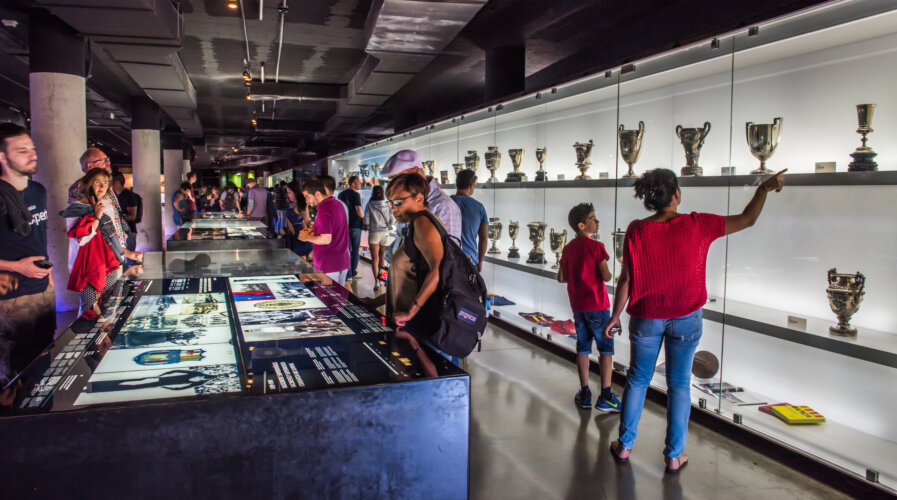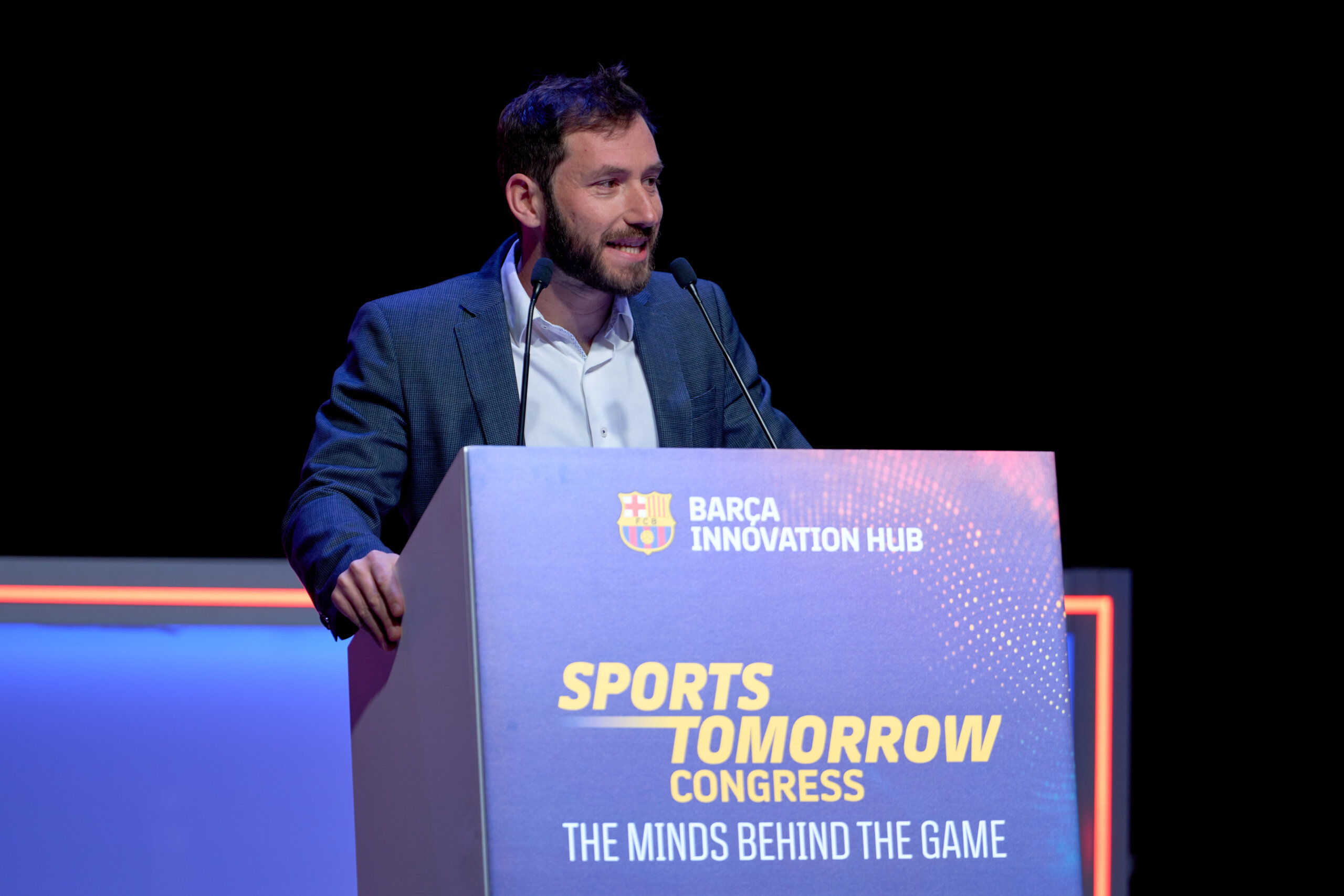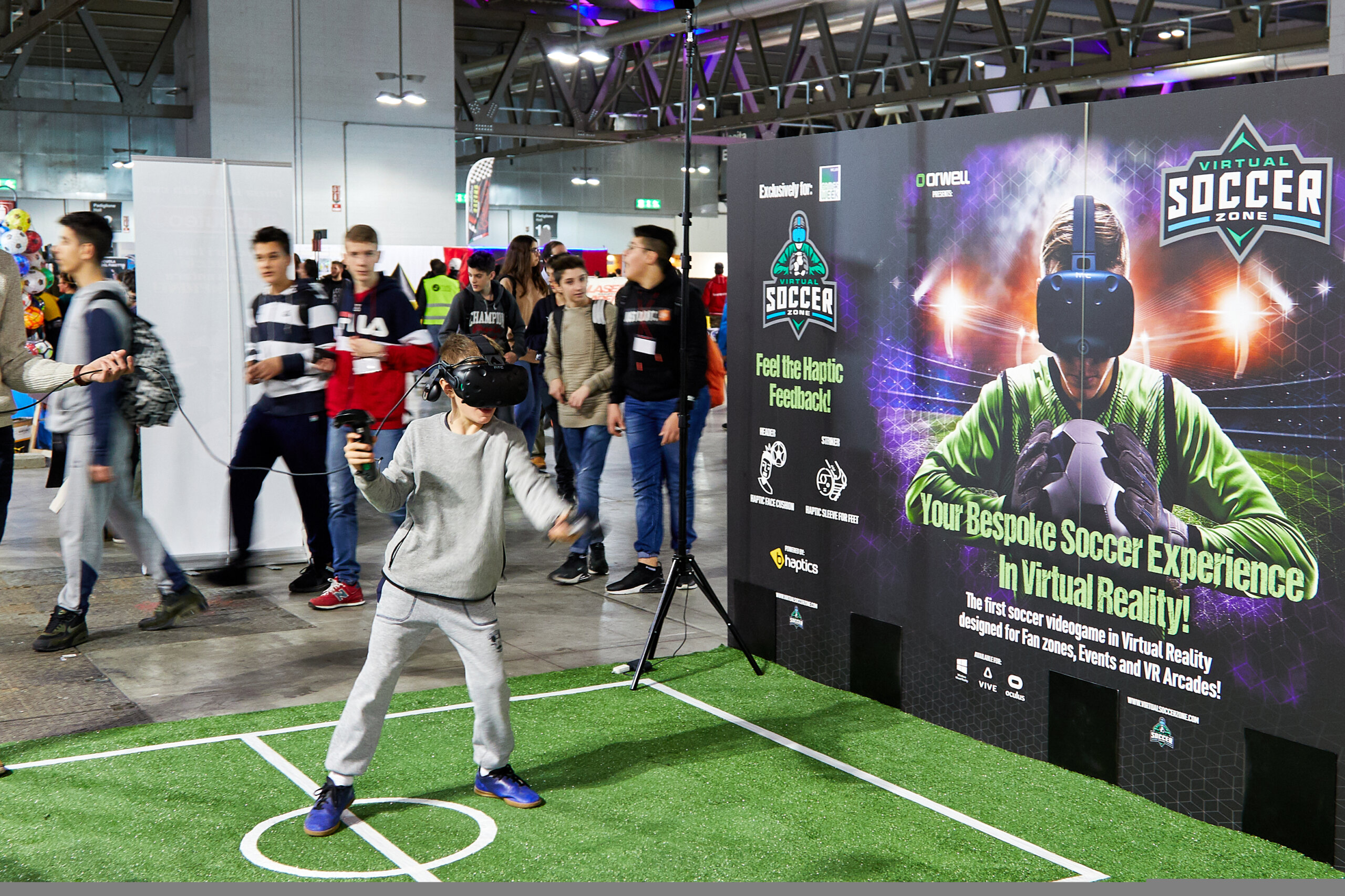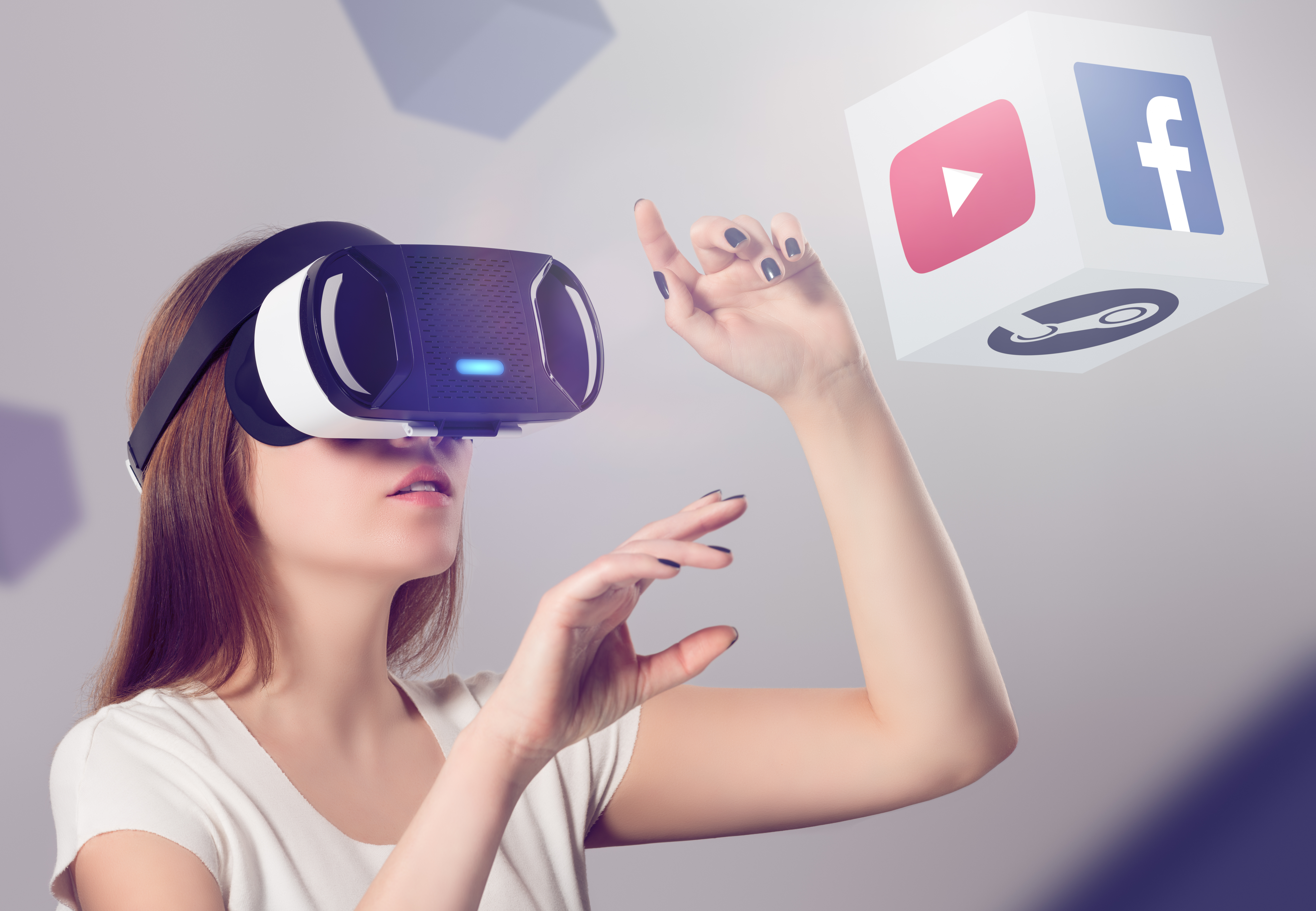
Insights from Barça Innovation Hub: How technology is revolutionizing the sports industry
- Coaches and athletes are utilizing AI to examine player and team data for performance metrics, which provides them with fresh perspectives.
- Barça Innovation Hub has six key areas of applied research in sports sciences, including “Sportomics.” This field aims to merge data from all omics sciences to enhance individualized training and injury prevention.
In recent years, technology has significantly impacted the world of sports. Technological advancements have changed how people experience sports by enhancing athletes’ performance and creating new ways for fans to engage with their favorite teams.
Artificial Intelligence (AI) has transformed how athletes train and compete by providing teams and organizations with powerful tools to analyze large datasets and gain valuable insights into their performance. One such tool is player tracking technology, which uses AI algorithms to capture and analyze players’ movements on the field. By tracking players’ location and velocity, teams can obtain crucial insights into their performance, enabling them to develop new strategies and improve their overall gameplay.
According to primary research, the market value of AI in sports was estimated to be approximately US$1,629.5 Million in 2021 and is expected to grow to US$7,757.0 Million by 2028. The Asia Pacific (APAC) region is anticipated to be the leading market for AI in sports worldwide.
Tech Wire Asia interviewed Albert Mundet, Director of Barça Innovation Hub, ahead of the Sports Tomorrow Congress 2023 in Barcelona. The interview aimed to explore the role of human and machine cognition in sports development and shed light on Barça Innovation Hub (BIHub), a leading sports technology research center.
BIHub organizes an annual congress called Sports Tomorrow Congress (STC), which provides a platform for leading professionals to exchange ideas and establish new connections. In the current edition, BIHub has formed a strategic partnership with Mobile World Congress to enhance the conference and position it as the top Sports Tech Congress globally.
The use of AI in the sports industry
The use of AI and machine learning in the sports industry is crucial. Technical skill and physical power are crucial factors for success, but what sets the best athletes apart from the rest is their mental game. Understanding how the human brain and sports intersect is one of the topics of the Congress.

Albert Mundet, Director of Barça Innovation Hub
“We are also going to frame cognition from machines. We are seeing the growth of artificial intelligence in the last years,” said Mundet. “AI is becoming ubiquitous in any single sector, including sports. A good example is the application of predictive models to support sales strategies. More specifically, we can predict which seats will not be occupied by season ticket members and therefore have more time to sell tickets in advance.”
In terms of the role of high-performance computing (HPC) technologies in advancing science and medicine and their application in sports, AI’s increasing power and the growth of larger data sets will require HPC to help grow models. For instance, Mundet highlights a collaboration with the Barcelona Supercomputing Centre (BSC), less than 2 km from the Spotify Camp Nou. Together, they built a digital twin of the current stadium using various data sources such as turnstile access, ticketing data, or city mobility. Through AI applications, predictive models that simulate fan behavior can be built based on different variables such as rain, match time, or access point closures due to construction work.
Mundet says that “this project represents the first steps towards providing the new Spotify Camp Nou with an even more enriched digital twin, using all the technology we will incorporate, to try to maximize both the management efficiency and experience of our fans, something that will be unique in the world. All these projects would not have been possible without the supercomputing capacities of BSC.”
The potential benefits that VR and AI can offer
The integration of VR and AI in sports has the potential to offer numerous benefits, particularly in enhancing the audiovisual experiences of audiences, which is a crucial aspect of the sports industry. As for integrating cognitive training and performance in football, there is still much room for growth in studying brain functionality. According to Mundet, by improving cognitive abilities, players can benefit from enhanced performance on the field, improving their overall effectiveness and success as athletes.
As for integrating cognitive training and performance in football, there is still much room for growth in studying brain functionality. Elite football players rely heavily on their cognitive abilities to understand the game, tactics, and anticipate situations. Intuition is a critical factor in this anticipation, and the challenge of cognitive training is to enhance these abilities during gameplay, predicting potential outcomes within the next five seconds without conscious thought.

Source – Shutterstock
According to Mundet, by improving cognitive abilities, players can benefit from enhanced performance on the field, improving their overall effectiveness and success as athletes.
How is Barça Innovation Hub driving technology innovation in the sports industry?
The BIHUB is organized into four areas of focus: start-up investment, scientific research and innovation projects, talent development through training programs, and the Sports Tomorrow Congress. At the STC, the BIHUB announced their initial two direct investments into start-ups, namely Visualfy and Oliver.
In the past, the BIHUB has acted as an accelerator laboratory for start-ups, working collaboratively to develop new products. One such success story is the Real Track Systems’ Wimu Pro solution, utilized by the first team after the acceleration process and ultimately acquired by the US sports multinational HUDL.
According to Mundet, the Research and Innovation department at BIHUB is focused on six strategic lines of applied research in sports sciences. One of these lines, called “Sportomics,” aims to integrate data from various omics sciences to personalize training and prevent injuries more effectively.
“We also develop different pilots with frontier technological solutions to validate whether they could help the Club in its different activities. Many of these projects are financed by public funding funds for Research and Innovation such as the Horizon programs of the European Commission,” said Mundet.
Regarding Talent, BIHUB offers more than 46 online training programs in various disciplines related to sports science, catering to over 35,000 students from 145 countries worldwide. Mundet added that BIHUB collaborates with several universities and academic institutions to provide nine in-person master’s and postgraduate courses, which over 650 students attend.
Web3, like any other technological advancement, is in the process of becoming significant. The phases of this process may be volatile, similar to the late 90s emergence of the Internet. It may take time, and many companies may fail while attempting to create businesses at the forefront of technology. However, Mundet believes that blockchain technology has the potential to solve certain issues in the digital world. Where there is a problem, there is a business opportunity. The tokenization of certain interactions between fans and teams, particularly, is an area with tremendous potential.
What it means for the APAC region
Mundet has stated that the APAC region presents an attractive opportunity for their company to search for start-ups that meet their criteria. They are seeking companies that already have established clients or revenue streams, but could benefit from their assistance in terms of product and commercial growth.
“We are exploring the possibility to bring the Sports Tomorrow Congress to the APAC region; it might take a while since we would need to build our partner structure for the Congress in the Region,” he added. “However, we are expanding our Talent and Education programs in the region; and we are looking to partner with universities or education institutions who are willing to work with us to promote the next generation of sports professionals in the region.”
READ MORE
- The criticality of endpoint management in cybersecurity and operations
- Ethical AI: The renewed importance of safeguarding data and customer privacy in Generative AI applications
- How Japan balances AI-driven opportunities with cybersecurity needs
- Deploying SASE: Benchmarking your approach
- Insurance everywhere all at once: the digital transformation of the APAC insurance industry

